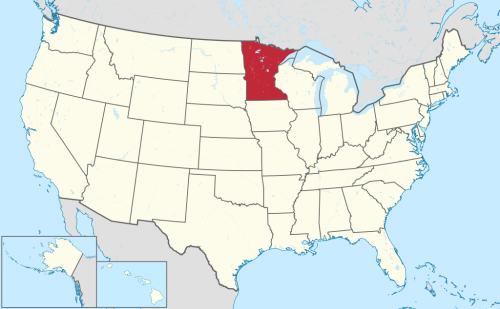
In the coming month, two Obama appointed judges are resigning from the bench. Judge Gregg Costa, who serves on the Fifth Circuit and Judge Abdul Kallon, who serves on the U.S. District Court for the Northern District of Alabama, are both resigning on August 31, 2022. This, in and of itself, is not particularly remarkable, until one considers that both judges, giving up lifetime appointments, are barely knocking on the doors of their 50s. It is unusual for a judge to leave the bench before reaching eligibility for retirement, but for two to leave in the same month when they have decades of tenure ahead of them does raise a question. Both Costa and Kallon were appointed to the bench at age 40. Do judges appointed at younger ages, despite the hope for their longevity, tend to leave the bench early?
The Rule of 80
Federal judges become eligible for retirement (or for reducing their caseload under senior status) under the Rule of 80. That means that, when the length of a judge’s active tenure on the federal bench added to their age meets or exceeds 80, they are eligible to retire at full pay. As such, a judge appointed to the bench at age 52 would have to serve fourteen years in active status before becoming eligible for senior status. In comparison, a judge appointed at age 56 would serve only twelve years in active status before becoming eligible. The exception to the rule of 80 is if the judge was appointed to the bench before age 50, in which case the judge becomes eligible on their 65th birthday regardless of the length of their tenure. Because of this exception, in theory, judges appointed in their 30s and 40s have a lengthy tenure as an active judge before hitting eligibility for senior status or retirement.
Judges Who Resigned Before Hitting the Rule of 80
Looking back fifty years, the last ten presidents have appointed a total of eighty judges who resigned from the bench before hitting eligibility for senior status/retirement. Breaking it down, eighteen of President Nixon’s appointees to the federal bench resigned early. In comparison, President Ford’s number is three, President Carter appointed eleven, President Reagan appointed nine, President George H.W. Bush appointed eleven, President Clinton appointed thirteen, President George W. Bush appointed eleven, and President Obama has appointed four early resignations (including Costa and Kallon). So far, none of President Trump’s or President Biden’s appointees have resigned early.
Looking at the eighty resignees, they were generally appointed to the bench at comparatively younger ages. While the average judicial nominee over the last fifty years has been appointed to the bench between 50 to 52 years of age, only thirteen of the eighty resignees were appointed to the bench at age fifty or above. In comparison, eighteen of the resignees were appointed between the ages of forty-five and forty-nine, thirty-one were appointed between forty and forty-four, and eighteen were under the age of forty when they were appointed to the bench. As such, a significant majority of judges who resigned over the last fifty years were under the age of forty-five when appointed to the bench.
This is even more notable when one considered how few nominees, comparatively speaking, were traditionally appointed to the bench at such young ages. Consider the following:
- Nixon appointed forty-six judges under the age of forty five. Twelve of them or 26% resigned early. In comparison, only 3.2% of judges appointed at forty five or older resigned early.
- Ford appointed eleven judges under the age of forty five. Three of them or 27.3% resigned early. In comparison, none of his judges appointed at forty five or older resigned early.
- Carter appointed fifty judges under the age of forty five. Seven of them or 14% resigned early. In comparison, only 1.9% of judges appointed at forty five or older resigned early.
- Reagan appointed one hundred and eleven judges under the age of forty five. Five of them or 3.6% resigned early. In comparison, 1.8% of judges appointed at forty five or older resigned early.
- George H.W. Bush appointed sixty-eight judges under the age of forty five. Eight of them or 11.8% resigned early. In comparison, only 2.3% of judges appointed at forty five or older resigned early.
- Clinton appointed sixty-two judges under the age of forty five. Seven of them or 11.3% resigned early. In comparison, only 1.9% of judges appointed at forty five or older resigned early.
- George W. Bush appointed forty-nine judges under the age of forty five. Five of them or 10.2% resigned early. In comparison, 2.1% of judges appointed at forty five or older resigned early.
- Obama appointed forty-six judges under the age of forty five. Two of them or 4.3% resigned early. In comparison, 0.7% of judges appointed at forty five or older resigned early.
All in all, 11% of judges appointed by these Presidents who were under the age of 45 at the time of appointment ended up resigning early, a disproportionately high number.
Nor can this discrepancy be explained by younger judges merely having a larger window to resign early. Of the judges appointed under the age of forty, for example, they left the bench at an average age of forty-seven, with most of them serving less than a decade on the bench.
Why Do Younger Appointees Leave Early?
So, what can explain why judges appointed to the bench early are more likely to leave the bench early? Looking at the judges who resigned early, there are three main motivations for these resignations.
The first and largest category of resignations involve judges who returned to private practice. Many of these judges cited the comparatively low pay for judges in motivating their decision to retire. Central District of California Judge Stephen Larson, for example, resigned his lifetime appointment three years in, noting that a federal judge’s salary is insufficient to support his family of seven children. Larson was only forty-five when he left the bench. About twenty years before Larson left the bench, fellow California Judge Raul Ramirez also resigned the bench at forty-five, again citing the comparatively low pay that comes with being a federal judge. Other judges, like Costa, cited a desire to return to the role of an advocate. No matter what the justification, however, there is no denying that a federal judge can easily quintuple their salary (or more) by moving to private practice. For a judge who is looking at a decade or more until their caseload eases with senior status, the desire for a more lucrative career may be a strong motivator.
The second category of judges are those who accepted other appointments or careers (please note that judges elevated to the courts of appeals or supreme court are not considered resignations). This includes judges who accepted appointments on state courts, including Eastern District of Michigan Judge Patricia Boyle, who was appointed to the Michigan Supreme Court. Boyle’s son noted that she felt she could do more for the people of Michigan as a state judge. Other judges took executive appointments, including Judge Louis Freeh, who resigned a seat on the Southern District of New York at forty-three to become Director of the Federal Bureau of Investigation, and Judge Mark Filip, appointed to the Northern District of Illinois at thirty-seven, who left four years later to serve as U.S. Deputy Attorney General.
The final category of resignations include judges who resigned due to scandals or ethical issues. This group includes judges who served on the bench for a comparatively longer period of time. Colorado Judge Edward Nottingham, for example, served nearly two decades on the bench before resigning amidst multiple misconduct scandals. Despite the length of his tenure, Nottingham was still five years away from senior status eligibility when he retired. Similarly, Middle District of Alabama Judge Mark Fuller resigned his lifetime appointment after twelve years on the bench after an arrest for misdemeanor battery against his wife.
Explanations
So what does all this tell us about why younger judges tend to leave the bench early. The answer might be remarkably simple. For judges appointed after 20+ years of legal experience, a lifetime appointment can be seen as a capstone on their career. However, younger judges may see it as a tool for career advancement, and, as such, might be more willing to step away if they find another position that is sufficiently attractive.
Of course, none of this suggests that appointing younger judges is completely counterproductive. The vast majority of federal judges, appointed young or otherwise, stay on the bench until retirement eligibility. Furthermore, younger appointees are more likely to be elevated to appellate positions. Every justice currently serving on the Supreme Court, for example, was originally nominated for the federal bench at age forty-five or younger (although Roberts and Kagan were not confirmed on their original nominations). However, the likelihood of younger judges to resign their appointments early could mitigate the utility of appointing younger candidates. As such, future Presidents may consider whether their 40-year-old nominee would will leave the bench a decade down the road.


